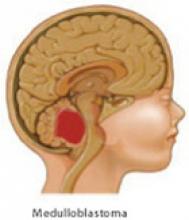Defense cites child’s medulloblastoma
<court>New York County (NY) Supreme Court</court>
Upon admission for delivery of her first child, a 36-year-old woman was given a small dose of oxytocin. Shortly thereafter the physicians noted fetal tachycardia, followed by bradycardia. Oxygen was given and the infant was delivered by vacuum extraction.
Durifng the next 2 days, the infant had several seizures. She was eventually diagnosed with hypoxic ischemic encephalopathy, resulting in mild retardation with cognitive and learning disabilities.
After claims against the physicians were dismissed, the plaintiffs proceeded to trial against the hospital, claiming it failed to identify nonreassuring signs on the fetal heart monitor and failed to repeat a scalp pH test. The plaintiffs asserted a cesarean section should have been performed as soon as tachycardia occurred.
The defense asserted the arterial blood gas analysis showed a normal pH level and modest base excess, and claimed the infant’s EEG was nonspecific. The defense also claimed the child’s medulloblastoma, which was diagnosed at age 6, was the cause of the cognitive and learning disabilities.
- The hospital settled for $2.75 million.
Incontinence blamed on surgeon sued 20 times
<court>Kings County (NY) Supreme Court</court>
A 45-year-old woman complaining of abdominal pain and bladder pressure was diagnosed with ovarian cysts, and a laparoscopy was planned for their removal. A laparotomy was actually performed, after which the woman had urinary incontinence. During an evaluation, a ureteral obstruction was diagnosed. Despite multiple corrective surgeries, the urinary incontinence persisted.
In suing, the woman alleged the surgeon performed the laparotomy improperly. A $1 million settlement was reached with the physician and the case proceeded to trial against the hospital.
The woman faulted the hospital for failing to supervise the surgeon, who had been sued for medical negligence more than 20 times, which she claimed should have led to mandatory supervision during surgery.
Parties for the hospital claimed the physician was properly credentialed and that most of the suits against him either were dismissed with no payment or resulted in a defense verdict. They noted that none of the prior suits claimed surgical negligence.
- After the jury returned a verdict for the plaintiff, the hospital moved to vacate the verdict, which the judge granted. The matter was dismissed, but an appeal is pending.
Both OBs deferred cesarean
<court>Suffolk County (Mass) Superior Court</court>
A woman was admitted at 41 weeks’ gestation because of a nonreactive nonstress test. The baseline fetal heart rate was in the 160s. A VBAC delivery was planned.
The first OB noted that the fetal heart rate dropped to the 70s for 3 minutes with a contraction, and that the cervix was thick and dilated 1 cm. He noted a plan to use dinoprostone gel and induce labor in the morning. Shortly thereafter the labor nurse noted mild irregular contractions in response to the gel. Intermittent late decelerations were noted before a second OB took over care.
Several hours later a prolonged deceleration to the 70s–90s occurred for 10 minutes. Cesarean section was performed an hour later. The infant was born with neurological and physical deficits.
In suing, the mother claimed the physicians failed to intervene despite signs of fetal distress, and the second OB failed to expedite delivery.
The second physician claimed there was no justifiable basis for proceeding to cesarean section any sooner than he did.
- The outcome of the case against the first physician is unknown. The second defendant settled for $900,000.
Sepsis, renal failure, coma after hysterectomy
<court>Pinellas County (Fla) Circuit Court</court>
A 39-year-old diabetic woman suffering from abdominal pain and excessive uterine bleeding underwent a hysterectomy. An abdominal x-ray was obtained 8 days later by a family physician because the woman continued to experience complications. The patient was discharged 3 days after that, and presented to the emergency department about a week later complaining of abdominal pain.
Exploratory laparotomy revealed a vaginal cuff infection, which was debrided, irrigated, and repaired. Complications developed again over the week, including sepsis, renal insufficiency, respiratory distress syndrome, and coma. Her condition continued to deteriorate during an extended hospitalization. She required a percutaneous endoscopic gastrostomy tube for nutrition, long-term intubation, and daily hemodialysis. An EMG 3 months after the hysterectomy revealed severe peripheral neuropathy in the right leg.
In suing the surgeon and the family physician, the woman claimed the x-ray shortly after the hysterectomy had revealed the vaginal cuff problem, to which she alleged the physician did not respond. She also claimed the physician did not review test results prior to her discharge.


